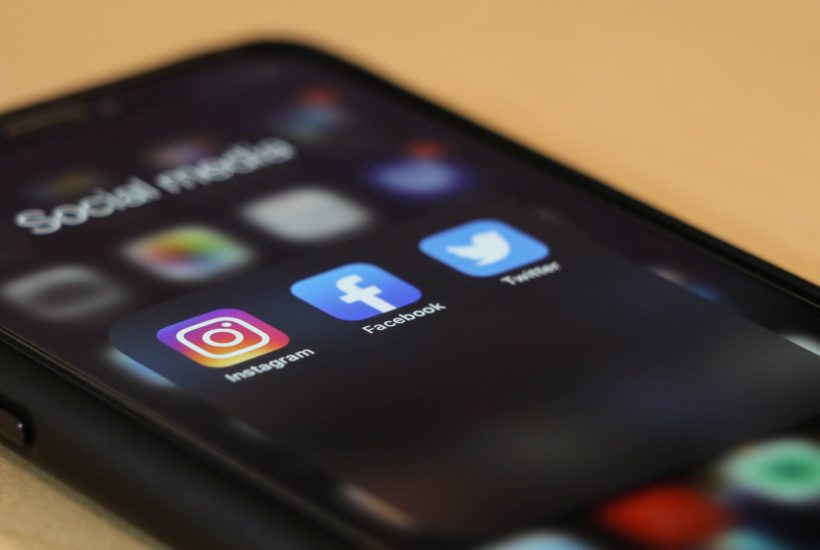Africa
Tech investors turn their attention to Africa
Whether American or Chinese, the giants of technology are all trying to take advantage of Africa’s staggering growth. Multiple high profile CEO’s have put money behind African start-ups and initiatives to encourage career development on the continent. Facebook is also looking to take advantage of growing social media adoption on the continent to shore up falling user numbers.

Jack Dorsey, the CEO, and founder of Twitter and the electronic payment company Square, is quietly tracing a path across the continent. Far from the frenzy and hype of social networks, the American has just supported two African start-ups in quick succession. On February 20th, 2020, he personally donated $6,000 to DevCareer, a Nigerian non-profit technology company, to train developers on the continent.
About ten days prior, the founder of Twitter announced his support for BitSika. Started barely five months ago by Atsu Davoh, a young Ghanaian, this start-up has got off to a flying start with $1 million in encryption transactions carried out at the beginning of January in Ghana and Nigeria via SMS. BitSika plans to develop its services in several countries, including French-speaking countries, Mauritius, Mali, Côte d’Ivoire, Senegal, Gabon, and Cameroon.
For the latest financial headlines, international news, and business stories from an African perspective, see our Born2Invest app to stay up to date.
Twitter follows in the wake of other Big Tech
Twitter and Square, but also Facebook, Google, Microsoft, Uber or the Chinese Ali Baba and the search engine Baidu are turning to Africa. In fact, the world kings of big tech, from the Silicon Valley to Hangzhou, China, are flocking to the continent.
Prior to shopping on the continent, Jack Dorsey toured Africa throughout November 2019, meeting entrepreneurs in Nigeria, Ghana, South Africa, and Ethiopia. He concluded his stay with a post that toured the African tweetosphere like a wildfire.
“Sad to leave the continent… for now. Africa will define the future (especially Bitcoin!). I don’t know where yet, but I will be living here for 3 to 6 months in the middle of 2020,” Dorsey tweeted on November 27th from Addis Ababa International Airport in Ethiopia. Since then, several countries on the continent have been arguing and pleading over who will host Silicon Valley’s iconic and visionary boss.
“Jack Dorsey is in the right place at the right time, and is investing the time needed to begin to understand the complexities of the African market,” said Witney Schneidman, a member of the Africa Growth Initiative and former Clinton assistant secretary of state for African affairs.
Birth of the high-tech business tourism
This high-tech business tourism really took off in 2015 with a rather discreet visit by the Managing Director of Microsoft Corporation, Satya Nadella, to Nairobi. A group that also benefits from the in-depth work in Africa of the Bill & Melinda Gates Foundation. But it was the stay of Facebook founder Mark Zuckerberg in Nigeria and Kenya in 2016, two countries that are among the top five social network users on the continent, that was the first to receive global media coverage. On a continent that saw Facebook subscribers grow by 732.8% between 2010 and 2016, the social media mogul said during his tour: “The future will be built in Africa.”
Since then, Sundar Pichai, the CEO of Google and the parent company Alphabet, visited Lagos in 2017. For his part, the Chinese Jack Ma, the founder of Alibaba, the e-commerce platform, has made his mark in Nairobi and Kigali. The latter visited Rwanda and South Africa again in 2018 before moving on to Ethiopia, Ghana, Nigeria, and Togo in 2019. “I believe that Africa’s future will be built by its entrepreneurs – by the hungry dreamers who see problems as opportunities. Looking into the eyes of the young people I met in 2017, I saw Africa’s future heroes. And I vowed to do my part to help them achieve their goals,” Jack Ma wrote in a December 2019 op-ed piece in the New York Times.
Africa, a market that attracts against the backdrop of the Sino-American confrontation
It’s a real Big Tech rush to Africa, which will be home to half the world’s population by 2050. “It’s a natural market for any technology entrepreneur,” Schneidman insisted. Last April, Google set up its first artificial intelligence research laboratory on the continent in Ghana. In May, Microsoft announced that it would invest $100 million over the next five years to create a technology development center in Africa, with sites in Kenya and Nigeria. Google, but also Facebook, Uber, Square, Visa, Mastercard or Salesforce support and take stakes in local start-ups.
Behind this high-tech euphoria is also a war between Washington and Beijing. Less mediatized, Chinese actors are present. For example, in 2019, Visa acquired 20% of Nigerian PalmPay, Africa’s largest financial services platform. The start-up has also raised $40 million from Chinese mobile phone manufacturer Transsion.
In total, according to estimates, Chinese venture capitalists would have committed more than $220 million by the end of 2019 to African start-ups (PalmPay, the online payment solution Opay, etc.). Jack Ma is only the emerging part of the Chinese strategy and probably the most structured. “The digital revolution has the potential to generate enormous – and inclusive – economic prosperity for Africa. But we need digital entrepreneurs to create the companies that can make it all possible,” he wrote in his forum.
Putting his words into action, Alibaba’s founder is not content to simply train young African Internet entrepreneurs at the Alibaba Business School in Hangzhou, China. In 2018, he founded the $10 million Africa Netpreneur Award. More than 10,000 candidates applied and three were awarded the prize on November 27, 2019. “Entrepreneurs should be Africa’s true heroes,” Ma said.
__
(Featured image by dole777 via Unsplash)
DISCLAIMER: This article was written by a third party contributor and does not reflect the opinion of Born2Invest, its management, staff or its associates. Please review our disclaimer for more information.
This article may include forward-looking statements. These forward-looking statements generally are identified by the words “believe,” “project,” “estimate,” “become,” “plan,” “will,” and similar expressions. These forward-looking statements involve known and unknown risks as well as uncertainties, including those discussed in the following cautionary statements and elsewhere in this article and on this site. Although the Company may believe that its expectations are based on reasonable assumptions, the actual results that the Company may achieve may differ materially from any forward-looking statements, which reflect the opinions of the management of the Company only as of the date hereof. Additionally, please make sure to read these important disclosures.
First published in LePoint, a third-party contributor translated and adapted the article from the original. In case of discrepancy, the original will prevail.
Although we made reasonable efforts to provide accurate translations, some parts may be incorrect. Born2Invest assumes no responsibility for errors, omissions or ambiguities in the translations provided on this website. Any person or entity relying on translated content does so at their own risk. Born2Invest is not responsible for losses caused by such reliance on the accuracy or reliability of translated information. If you wish to report an error or inaccuracy in the translation, we encourage you to contact us.

-

 Biotech2 weeks ago
Biotech2 weeks agoDiscovery of ACBP Molecule Sheds Light on Fat-Burning Tissue Suppression and Metabolic Disease
-

 Impact Investing6 days ago
Impact Investing6 days agoFrance’s Nuclear Waste Dilemma Threatens Energy Future
-

 Markets2 weeks ago
Markets2 weeks agoGlobal Sugar Market Sees Mixed Trends Amid Weather Shifts and Price Pressures
-

 Fintech3 days ago
Fintech3 days agoKraken Launches Krak: A Game-Changing Peer-to-Peer Crypto Payment App





















